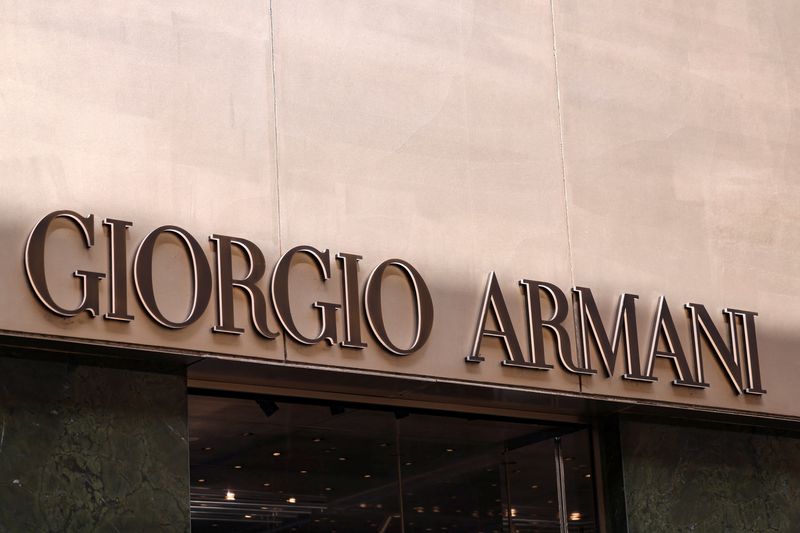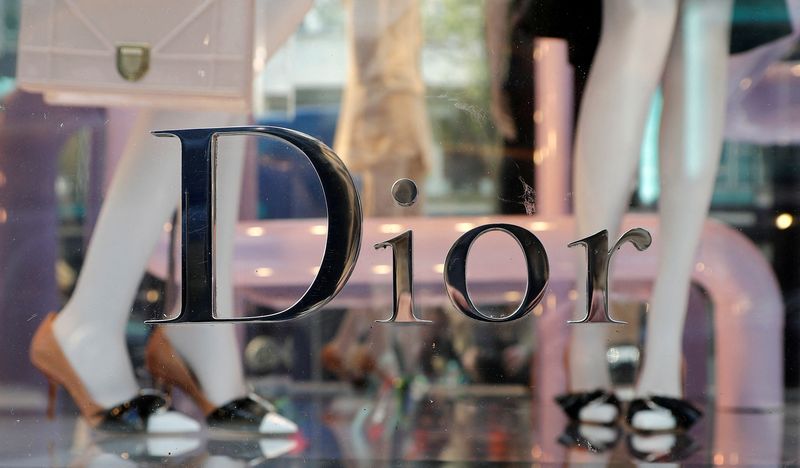By Alvise Armellini and Alessandro Parodi
ROME (Reuters) -Italy's competition authority is investigating whether luxury brands Armani and Dior had misled consumers, it said on Wednesday, following inquiries by prosecutors into worker exploitation at suppliers of the two groups.
Prosecutors in Milan uncovered workshops on the outskirts of Italy's fashion capital this year where underpaid workers, often immigrants who were in the country illegally, produced leather bags then sold to Armani and Dior for a tiny fraction of their retail price.
They placed under investigation several Chinese-owned Italian suppliers of Dior and Armani, while appointing commissioners to oversee the units of the two groups that outsourced the handbag production to ensure they fix their supply chain problems.
Dior, which is controlled by French luxury giant LVMH, said it was cooperating with the Italian authorities and would strengthen its checks on suppliers.
"No new order will be made in the future with these suppliers," it said.
"Despite regular audits, these two suppliers had
evidently succeeded in hiding these practices," it added.
Armani Group expressed confidence in a "positive result following the (antitrust) investigation", saying in a statement that its companies were fully committed to cooperating with the authorities and that it believed the allegations had no merit.
The antitrust authority carried out searches on Tuesday at the companies of the Armani and Dior groups targeted by its investigation, it said.
They were placed under investigation "for possible unlawful conduct in the promotion and sale of articles and clothing accessories, in breach of the (Italian) Consumer Code," it said.
Breaches of the consumer code in Italy incur fines ranging from 5,000 euros to 10 million euros (($5,500-$11 million).
STARK CONTRAST
Details of the workers' conditions released by prosecutors are in stark contrast to the glamorous image carefully projected by fashion brands through large marketing budgets.
Italy's antitrust authority said it was focusing on the discrepancies between the reality uncovered by the judicial labour probes and the messages from brands to consumers in terms of craftsmanship and corporate social responsibility.
As an example, Armani's U.S. website describes the stitching details on a $2,295 small handbag as "reminiscent of the world of tailoring", contributing to create "an exceptional accessory, in which every detail upholds the elegant and refined appeal of the brand's iconic bag".
Similarly, Dior markets its handbags as products where "savoir-faire meets modern elegance".
The authority said in a statement that Armani and Dior "emphasised the craftsmanship (of their products) and the excellence of their workmanship" while allegedly relying on workshops employing people on very low salaries, working long hours and in violation of health and safety rules.
In its statement, Dior said the suppliers affected were involved in the partial assembly of men's leather goods and that its profit margins were in line with those of the broader luxury industry.

The luxury industry's supply chain has come under increased scrutiny by consumers and investors in recent years. To reduce risks to their reputation, fashion labels have curbed the number of sub-contractors and brought production in-house.
($1 = 0.9166 euros)
